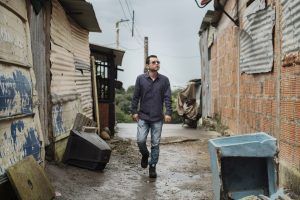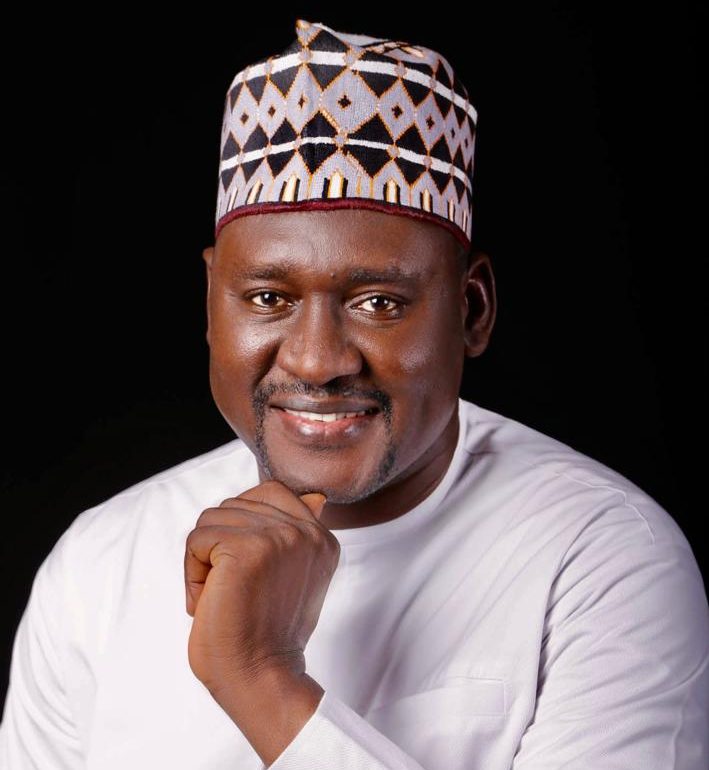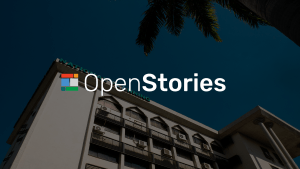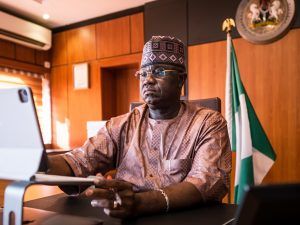Part 1: Building Political Will for Beneficial Ownership Transparency in Nigeria
See how Nigeria leveraged its OGP action planAction plans are at the core of a government’s participation in OGP. They are the product of a co-creation process in which government and civil society jointly develop commitments to open governmen... to introduce legislationCreating and passing legislation is one of the most effective ways of ensuring open government reforms have long-lasting effects on government practices. Technical specifications: Act of creating or r... on establishing a beneficial ownershipDisclosing beneficial owners — those who ultimately control or profit from a business — is essential for combating corruption, stemming illicit financial flows, and fighting tax evasion. Technical... More registry and sign the Companies and Allied Matters Act (CAMA) bill, a key milestone for their long-term beneficial ownership transparencyAccording to OGP’s Articles of Governance, transparency occurs when “government-held information (including on activities and decisions) is open, comprehensive, timely, freely available to the pub... More vision, into law in 2020. By drawing upon its status as an OGP member and beneficiary of the OGP Multi-Donor Trust FundWith the support of development partners and working together with the World Bank, OGP established the Multi-Donor Trust Fund (MDTF) to support World Bank client countries and local entities that part... (MDTF), Nigeria fostered political will within key government institutions like the National Assembly and Presidency. This helped them overcome challenges around budgeting, institutional memory, and cross-agency collaboration. The BOT registry will help stop the illicit flow of more than US$15.7 billion through Nigeria and was called the “most significant law in decades” by civil society activists.
This story is part of a series called Reform in Action, which demonstrates how the OGP model contributes to domestic open government results.
Progress So Far
Beneficial ownership transparency (BOT) is one of the key tools Nigeria is using to fight the country’s grand corruption and ghost companies. Since joining OGP in 2016, Nigeria has used BOT to improve the transparency and fairness of the public procurement market. Under their 2017-2019 action plan, Nigeria built an extractives-focused beneficial ownership register, which served as a building block for the central registry currently being instituted per its 2019-2022 action plan. This register won first place in the 2021 OGP Impact Awards for the region. In their award video, The Nigerian Extractive Industries Transparency Index shared that BOT has been a win-win situation for government, businesses, and citizens alike, as a fairer market means increased competitiveness and cost savings that can lead to improvements in the goods and services citizens use every day – from public schools, to water access, to highways. In a country where an estimated US$15.7 billion illicitly leaves the country’s financial system every year, the transparency of beneficial owners has significant and wide-reaching impacts on the quality of citizens’ lives.
 Reform in Action
Explore how reformers from across the globe leverage their engagement with OGP to achieve their open government goals and how incremental progress can lead to systemic change.
Reform in Action
Explore how reformers from across the globe leverage their engagement with OGP to achieve their open government goals and how incremental progress can lead to systemic change.
Using support from the OGP Multi-Donor Trust Fund (MDTF), the Nigerian government and civil society organizations (CSO) are now collaborating with the Corporate Affairs Commission (CAC), who is leading on the implementation of Nigeria’s BOT commitmentOGP commitments are promises for reform co-created by governments and civil society and submitted as part of an action plan. Commitments typically include a description of the problem, concrete action.... In mid-2021, they began by holding focus groups with current and potential users of BOT data. In these sessions, government officials, civil society, private sectorGovernments are working to open private sector practices as well — including through beneficial ownership transparency, open contracting, and regulating environmental standards. Technical specificat... More, and media shared feedback and ways that reforms in this area can be as sustainable and impactful as possible.
Enablers of Progress
- Long-term goal: Nigerian stakeholders acknowledge OGP’s core work values in building a collaborative spirit and in incentivizing the government to proactively ensure civil society is represented at the table. For example, the two co-chairsThe leadership of the Steering Committee is made up of four co-chairs who provide strategic guidance and support to advance OGP’s overarching priorities. Co-Chairs serve two-year terms beginning on ... of OGP and the Civil Society Legislative Advocacy Center (CISLAC), the key civil society players the Nigerian National Assembly, the CAC, and the OGP Nigeria Secretariat have worked closely in advancing BOT.
- Strong political support and government champions: Since beginning its journey with OGP in 2016, Nigeria has developed and maintained high-level political support for BOT. We see evidence through important national events, including one held during 2021 Open Gov Week that brought together the Ministry of State, Budget, and National Planning, the CAC, the private sector, the World Bank, and the UK Foreign & Commonwealth Development Office (FCDO). Among several key champions, the Minister of State, Budget and National Planning Clem Agba as the Nigerian OGP Co-Chair has been particularly powerful in advancing work around this policy area. His political commitment to BOT reform and OGP has been pivotal given his position leading the Ministry that can transform government budgeting and resourcing.

Civil society reformers like Auwal Ibrahim Musa, the Executive Director of the Civil Society Legislative Advocacy Center (CISLAC), played a key role in Nigeria’s beneficial ownership transparency progress.PHOTO: Credit: CISLAC
The OGP Platform in Action
- Reform coalitions: The Registrar General of the CAC worked with OGP to access international opportunities and leadership roles across the OGP community, such as the Beneficial Ownership Leadership Group and the OGP Steering CommitteeThe Steering Committee is OGP’s executive decision-making body. Its role is to develop, promote and safeguard OGP’s values, principles and interests; establish OGP’s core ideas, policies, and ru.... Nigeria’s regional leadership role in these global fora pushed the country to model best practices in how it conceived and designed its reforms. It also encouraged the country to lead by example by successfully implementing its commitments.
At the same time, Minister Agba advocated for presidential assent to the legislation. Along with the Registrar General of the CAC, Minister Agba organized a coordination meeting for work at the parliamentary level to be delivered by the National Economic Summit Group .
CISLAC and other CSOs played a sustained role in developing the BOT reform components of the legislation as it was progressing through the National Assembly. Finally, the role of the Civil Society Advisor, which was unique to Nigeria, was key in developing a high level of trust and influence with the Chair and CSOs engaged with the OGP platform in Nigeria and the global OGP community. This role was funded through the UK Foreign, Commonwealth, and Development Office’s Partnership to Engage, Reform, and Learn program.
- Establishing a budget line for OGP activities: One of the key challenges with open government work in Nigeria is that activities are highly dependent on budgets, which shift frequently and are often not duly disbursed. Government funding in Nigeria often focuses on recurrent spending such as personnel rather than on investment or development funding, such as implementing new systems or services. To create a sustainable pathway to achieve the transformational change they envision, with support from OGP, Nigeria established a dedicated budget line for OGP activities within the ministry’s budget. It advanced the sustainability of the reform, even across changes in OGP leadership at the national level or in major funding organizations.
- MDTF funding: Nigerian stakeholders report that the OGP MDTF has been an important tool to navigate serious political challenges to implementing BOT, including the development of a robust BOT register. The MDTF has been such a strong political tool in Nigeria for high-level officials, including the Minister of State, Budget, and National Planning and the Secretary General of the Federation. Without the MDTF, it is possible that the political interests of opponents to BOT, such as legislators, may have prevented the implementation of a robust register. This funding has also served a functional purpose. Nigerian stakeholders claim it has helped develop a strong register that meets international standards since it provides core funding beyond what is possible in government budgets.
What’s Next
Nigeria has the opportunity to build up BOT reform even further and increase its impact and sustainability, including through greater collaboration between government ministries, departments, and agencies. Historically, these groups have not worked closely on the implementation of the BOT register, which is a key challenge to its successful development. Closer collaboration between key groups will ensure the register meets international standards. Of particular importance is greater collaboration between the CAC and the Ministry of JusticeTo address barriers that prevent citizens from having their justice needs met, OGP participating governments are working to expand transparency, accountability, and inclusion into all systems of justi... around the enforcement of the CAMA bill. Deepening the engagement of the private sector in the development of the register will also be crucial. An opportunity to do so may lie within the National Economic Summit Group (NESG), a private sector-led NGO who serves as the Civil Society Co-Chair of Nigeria’s OGP Steering Committee. The NESG may have the necessary influence to pique the interest of private sector actors in supporting the implementation of Nigeria’s BOT-related commitments.
No comments yet
Related Content

From Commitment to Law of the Land: Beneficial Ownership Transparency in Nigeria
Shell companies are often a major enabler of corruption and financial crime. To tackle this, Nigerian reformers in government and civil society came together to establish a registry to disclose…

Beneficial Ownership
Beneficial ownership transparency has emerged as an important policy tool in countries for combating corruption, stemming illicit financial flows, and fighting tax evasion.

Reform in Action
Explore how reformers from across the globe leverage their engagement with OGP to achieve their open government goals and how incremental progress can lead to systemic change.


Leave a Reply